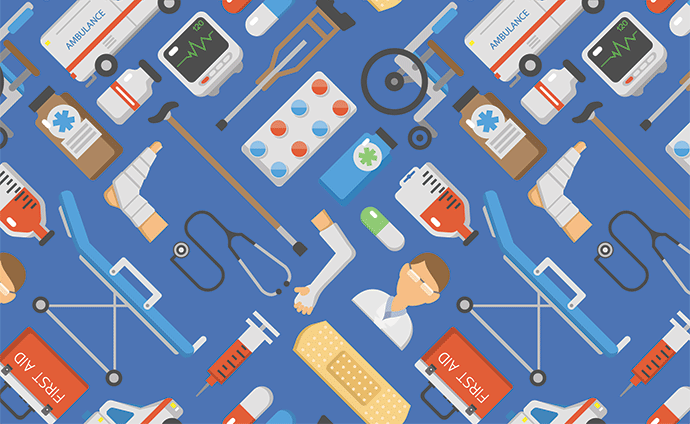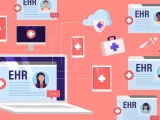
Medical Coding and Billing: The Backbone of Healthcare Administration
November 20, 2024In the intricate world of healthcare, medical coding and billing serve as the backbone of administration, ensuring the accurate documentation of patient care and the seamless flow of financial operations. These vital processes play a pivotal role in maintaining the integrity of patient records, facilitating proper reimbursement, and driving the operational efficiency of healthcare organizations. This essay explores the fundamentals, importance, and future of medical coding and billing, shedding light on their transformative impact on the healthcare industry.
Understanding Medical Coding and Billing
Medical coding involves converting healthcare diagnoses, procedures, and services into standardized alphanumeric codes. These codes—primarily ICD-10-CM, CPT, and HCPCS—are essential for tracking patient care, facilitating accurate billing, and ensuring consistent record-keeping across providers. On the other hand, medical billing is the process of submitting claims to insurance companies and other payers for reimbursement. While often intertwined, coding focuses on assigning accurate codes, whereas billing ensures that these codes translate into financial transactions.
The roots of medical coding can be traced to the early 20th century, with the development of classification systems to track diseases and mortality. Over time, these systems evolved into sophisticated frameworks, bolstered by the advent of Electronic Health Records (EHR), which have made medical coding indispensable in modern healthcare.
The Importance of Medical Coding and Billing
Medical coding and billing serve as the linchpins of the healthcare industry, ensuring accuracy, efficiency, and transparency.
- Accurate Patient Records
Coding ensures a standardized patient history, enabling continuity of care and improving communication among healthcare providers. - Billing and Reimbursement
Proper coding directly impacts insurance claims and reimbursement rates, ensuring that healthcare providers are fairly compensated for their services. - Data Analysis and Policy Development
Coded healthcare data is invaluable for epidemiological studies, policymaking, and resource allocation, driving improvements in public health.
Additionally, accurate coding and billing reduce errors, prevent fraud, and contribute to the financial stability of healthcare organizations, making them integral to the industry’s success.
Essential Skills and Tools for Aspiring Professionals
To excel in medical coding and billing, professionals must develop several core competencies:
- Attention to Detail: Accuracy in code assignment is critical to avoid billing errors.
- Analytical Skills: Coders must interpret complex medical records to assign precise codes.
- Medical Terminology Knowledge: A solid understanding of medical terms and anatomy is foundational.
- Technical Proficiency: Familiarity with specialized coding software and EHR systems is essential.
Professional certifications such as the Certified Professional Coder (CPC) or Certified Inpatient Coder (CIC) further enhance career prospects, demonstrating expertise and opening doors to advanced opportunities.
The Medical Coding and Billing Process
The process begins with reviewing medical documentation, such as progress notes and operative reports. Coders use these records to assign the appropriate codes using specialized tools. Accuracy is paramount; errors like upcoding (assigning codes for costlier services) or downcoding (assigning codes for less costly services) can lead to financial discrepancies and compliance issues.
Billing specialists then submit claims based on these codes, navigating complex insurance requirements to secure payments. Their role also involves addressing claim denials and ensuring compliance with regulations such as HIPAA.
Challenges and Solutions
Medical coders and billers face various challenges, including:
- Complex Guidelines: Coding rules can vary by payer and specialty, leading to potential errors.
- Evolving Regulations: Constant updates require professionals to stay informed of the latest industry changes.
- Incomplete Documentation: Accurate coding depends on thorough medical records.
To overcome these challenges, coders and billers must engage in continuous education, maintain open communication with healthcare providers, and implement quality control measures.
Medical Coding and Billing in Diverse Settings
Medical coding and billing are vital in various healthcare settings, from hospitals to private clinics.
- Hospitals: Coders handle inpatient and outpatient services, manage complex claims, and ensure compliance across departments like radiology and surgery.
- Clinics and Private Practices: Smaller-scale operations require coders to manage patient records and handle insurance claims with equal diligence.
Regardless of the setting, these professionals ensure that providers are compensated fairly and patients receive uninterrupted care.
The Future of Medical Coding and Billing
The landscape of medical coding and billing is rapidly evolving with technological advancements.
- Artificial Intelligence (AI) and Automation
Natural language processing (NLP) is revolutionizing coding processes, improving accuracy and efficiency. - Blockchain Technology
Emerging as a tool to enhance data security and privacy in healthcare transactions. - Globalization and Value-Based Care
With the shift toward value-based care and the globalization of healthcare, coders and billers must adapt to new reimbursement models and international coding standards.
These trends highlight the dynamic and promising future of the profession, offering opportunities for specialization in areas like telehealth coding and healthcare data analytics.
Conclusion
Medical coding and billing form the backbone of healthcare administration, ensuring the smooth operation of healthcare organizations while maintaining the accuracy of patient records. As these fields evolve with technological innovations and global trends, they continue to offer rewarding career opportunities for those with the requisite skills and dedication.
For anyone seeking a stable and impactful career in healthcare, medical coding and billing provide an excellent pathway to contribute to this vital industry. Through continuous learning, professional networking, and a commitment to excellence, aspiring coders and billers can thrive in this dynamic and essential field.
















